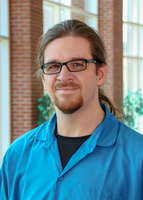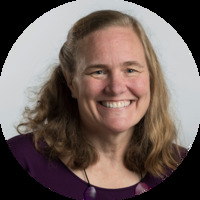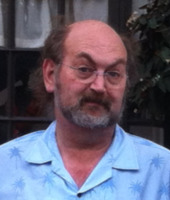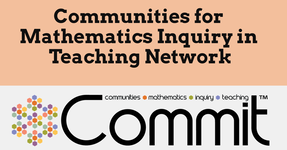
|
The Mathematical Association of America Maryland-District of Columbia-Virginia Section |
- Home
- History
- Main History Page
- Section History Document
- List of Past Officers
- Charter Members
- African-American Participation
- Stories from Section Members
- Section NExT Fellows
- Obituaries
- Smith Award Recipients
- Christensen Award Recipients
- Meritorious Service Award Recipients
- Undergraduate Award Winners
- Meeting Archive
- Past Meetings
- Talk Archive
- Old Section NExT Programs
- Newsletter Archive
- Meeting Minutes Archive
- Miscellaneous Documents
- Meetings
- Minutes
- Fall 2024 Executive
- Fall 2024 Membership
- Spring 2024 Executive
- Spring 2024 Membership
- Fall 2023 Executive
- Fall 2023 Membership
- Spring 2023 Executive
- Spring 2023 Membership
- Fall 2022 Executive
- Fall 2022 Membership
- Spring 2022 Executive
- Spring 2022 Membership
- Fall 2021 Executive
- Fall 2021 Membership
- Spring 2021 Executive
- Spring 2021 Membership
- Fall 2020 Executive
- Fall 2020 Membership
- Fall 2019 Executive
- Fall 2019 Membership
- Spring 2019 Executive
- Spring 2019 Membership
- Fall 2018 Executive
- Fall 2018 Membership
- Spring 2018 Executive
- Spring 2018 Membership
- Fall 2017 Executive
- Fall 2017 Membership
- Spring 2017 Executive
- Spring 2017 Membership
- Minutes Archive
- Newsletters
- Section NExT
- Awards
- Students
- Links
- Search
Fall 2023 Meeting at Stevenson University
Conference Links
Justin Dunmyre (on behalf of MD-DC-VA COMMIT)Frostburg State UniversityFriday workshop: Alternative Grading: Build-a-Syllabus Workshop Abstract: While you may be ready to make a change and to implement an alternative grading scheme (e.g. standards-based/specifications/mastery/un-grading), you may still wonder exactly how to do this. Or maybe you've heard enough about alternative grading to be curious about it. In this workshop we'll cover motivating considerations to assessing your students via alternative grading. We'll also cover many pitfalls that I've walked into (willingly or otherwise). We will discuss recommendations on implementing alternative grading from various sources as well as examples from our own experiences. We will also discuss guiding questions that can form the scaffolding of your own grading scheme, with dedicated workshop time to solidify the ideas of the session. My goal is for the participant to leave the workshop empowered to switch classes to an alternative grading scheme and be excited to do so. Biographical Sketch: Justin Dunmyre is an Associate Professor of Mathematics at Frostburg State University. His Ph.D. is in Mathematics with dissertation and early publications in mathematical neuroscience. Later, he shifted his scholarship to focus on teaching and learning, with forays into mathematics education. He is excited to support faculty to explore ways to improve their teaching and to adapt frameworks in ways that support both the student and instructor. He has actively experimented with alternative grading since 2015 with implementations in a wide variety of classes, including: Gen-Ed Statistics, Calculus, Differential Equations, Linear Algebra, and Intro-To-Proofs. Justin has presented on designing alternative-grading systems for the Grading Conference and the MAA Webinar series, published on it in PRIMUS, and is eager to bring the lessons he's learned about it to the workshop format. About MD-DC-VA COMMIT:

Dave TaylorRoanoke CollegeBanquet Address:More Mathematics + More Magic = Even More Mathemagic Abstract: When people think about magic, they tend to think about tricks, effects, routines, or illusions. In a way, it's one of the only professions or art forms where intentional deception is not only allowed but expected. When people think about mathematics, they tend to think about it being hard and it many cases “not for them.” But, it's also a crucial subject that everyone needs to appreciate and understand – at least enough to be an informed person in today's world. The two overlap in an unfortunate way – too many people choose to “give up” at the first stumbling block rather than trying just a little bit more. This banquet show is not a solution to any of these problems, but rather it's a show for all of to enjoy as a celebration of what can come out of “trying just a little bit more” and being brave about stepping over that stumbling block. The show will attempt to connect mathematical principles that most can already understand or use to highlight how and why some magic tricks work. And, the show will also most definitely include routines and effects that apparently have no connection to mathematics at all. Or, maybe they do and it just won't be apparent at the time. It's a show about fun and celebrating our Section and our wonderful community. Biographical Sketch: Dr. David Taylor is currently the Assistant Vice President for Academic Operations, Director of the Institute for Policy and Opinion Research, and Professor of Mathematics at Roanoke College where he has worked since 2007. His interests are varied, having moved from infinite dimensional Lie algebras in the 2000s, to probability and statistics, especially as they relate to casino and board games in the 2010s, to higher education administration and thinking through what higher education will look like in the 2030s and beyond. He is the author of Games, Gambling, and Probability: An Introduction to Mathematics, now in its second edition, as well as a co-editor of Living Proof: Stories of Resilience Along the Mathematical Journey, jointly published by the MAA and AMS and which was awarded the Euler Book Prize in 2022. He is starting his second term as Section Chair for this Maryland, DC, and Virginia Section, has not missed a Section meeting since the spring of 2007, and, since giving a “math talk” about magic last November, has advanced his “hobby” into a “professional hobby” – David is now a member of the American Society of Magicians, a member of the International Brotherhood of Magicians and owner of DT Magical Experiences, LLC. 
Deanna HaunspergerCarleton CollegeSaturday Morning Address:Community and Belonging in Mathematics Abstract: How can building communities in mathematics help in our ongoing quest to make mathematics more inclusive? From social psychologists we can learn the importance of individuals feeling accepted, valued, and legitimate within their community — the importance of a sense of belonging. From successful communities we can learn the power, in the form of resilience and perseverance, that their members enjoy. Armed with this information, we can create communities to support members of underrepresented groups in mathematics. Biographical Sketch: A former President of the Mathematical Association of America, Deanna Haunsperger has also served the MAA in numerous ways over the years, including as co-Editor of Math Horizons, Second Vice President, co-Chair of the Centennial Planning Committee, and Chair of the Council on Outreach. She is the 2021 recipient of the Yueh-Gin Gung and Dr. Charles Y. Hu Award for Distinguished Service. Haunsperger is passionate about opening the doors of mathematics to everyone, and towards that aim she co-directed with Steve Kennedy the Carleton Summer Mathematics Program for Women 1995-2014, named by the AMS as a Program that Makes a Difference. Haunsperger is co-Editor of several volumes, including The Edge of the Universe, A Century of Advancing Mathematics, 101 Careers in Mathematics, and Count Me In: Community and Belonging in Mathematics. She received the AWM M. Gweneth Humphreys Award for Mentorship of Undergraduate Women, the AWM President's Award, and was an inaugural AWM Fellow.Haunsperger is Professor of Mathematics at Carleton College where she has taught for over twenty-five years. She is married to fellow mathematician Steve Kennedy and has two adult children. 
Eugene BomanPennsylvania State University, HarrisburgSaturday Afternoon Address:Putting the Differential Back in Differential Calculus Abstract: The definition of the limit was the culmination of a 200 year effort to put a solid logical foundation under the Calculus invented by Leibniz and Newton. It is highly abstract, very subtle, and completely rigorous, but it disconnected from the previous mathematical experience of a beginning Calculus student. It is poor pedagogy to start the course with such an esoteric topic and I have long been frustrated with this non-intuitive approach to Calculus. But Calculus did not begin this way. Leibniz and Newton's invention was originally based on the less-than-rigorous, but highly intuitive notion of the differential (Leibniz) or an infinitesimal moment of time (Newton). I have long contended that differentials could provide a much better starting point for a student beginning a modern course in Calculus. My friend and colleague Robert Rogers (SUNY, Fredonia) and I have written an OER Calculus textbook supporting this approach. In this talk I will describe our goals for the book, how our text attains those goals, and what we learned in the process of writing it.Biographical Sketch: Eugene Boman is Professor Emeritus of Mathematics at the Harrisburg campus of the Pennsylvania State University. With Robert Rogers (SUNY, Fredonia) he has written, two mathematics textbooks: Differential Calculus: From Practice to Theory (2023), and How We Got From There to Here: A Story of Real Analysis (2014). In 2008 he won the Carl B. Allendorfer Award for excellence in expository mathematical writing from the editors of Mathematics Magazine for the article “Mom! There's an Astroid in My Closet” (Mathematics Magazine, Vol. 80 (2007), pp. 247-273). |
Copyright © 2023 - The Mathematical Association of America
Please send comments, suggestions, or corrections for this page to Brian Heinold at heinold@msmary.edu
Last Modified: 10/23/2023 - 11:08am
 The Fall 2023 Meeting of the MD-DC-VA section of the MAA
was held at
The Fall 2023 Meeting of the MD-DC-VA section of the MAA
was held at  The MD-DC-VA COMMIT was formed in early 2016 (the group was originally called the MD-DC-VA IBL Consortium) as a network of college math instructors with a common interest in teaching and learning using inquiry. We recognize that teaching with inquiry can look very different in different contexts, and view our role as supporting instructors in utilizing the version that works for them and their students. Names that have been used for teaching with inquiry include: ambitious teaching, project-based learning, complex instruction, inquiry-oriented learning, discovery learning, inquiry-based learning, and student-centered teaching. We welcome members who are new to teaching with inquiry as well as those who are more experienced. Please join us!
See the
The MD-DC-VA COMMIT was formed in early 2016 (the group was originally called the MD-DC-VA IBL Consortium) as a network of college math instructors with a common interest in teaching and learning using inquiry. We recognize that teaching with inquiry can look very different in different contexts, and view our role as supporting instructors in utilizing the version that works for them and their students. Names that have been used for teaching with inquiry include: ambitious teaching, project-based learning, complex instruction, inquiry-oriented learning, discovery learning, inquiry-based learning, and student-centered teaching. We welcome members who are new to teaching with inquiry as well as those who are more experienced. Please join us!
See the